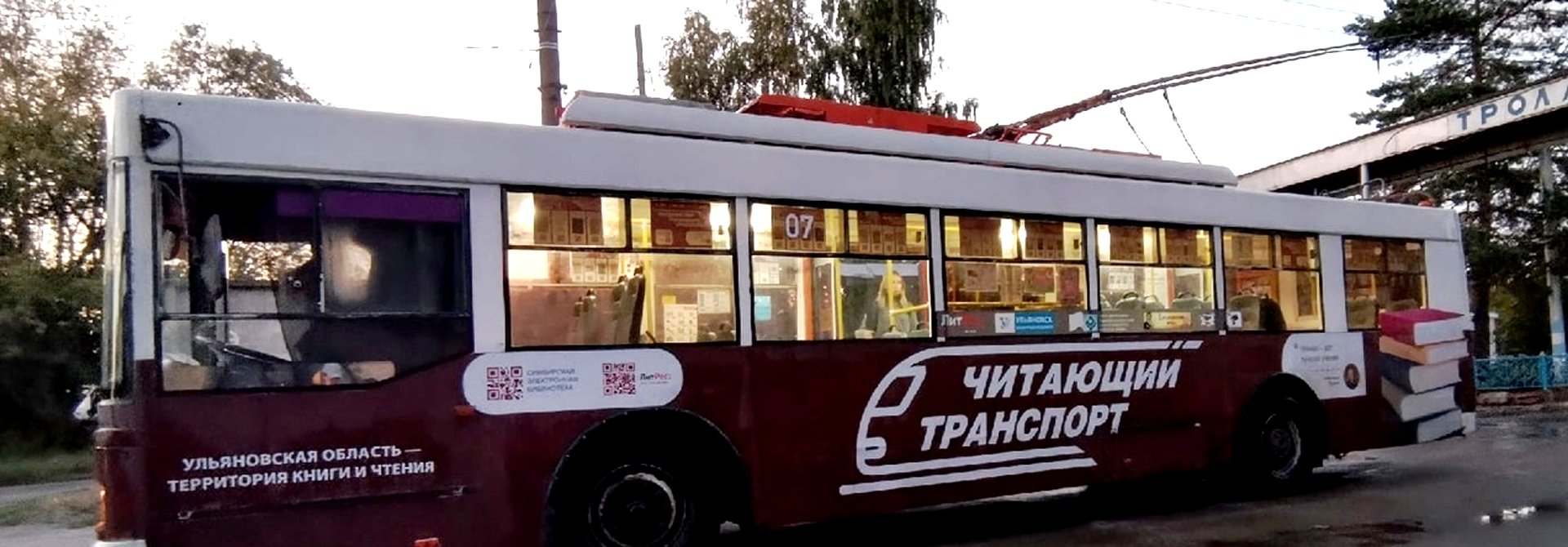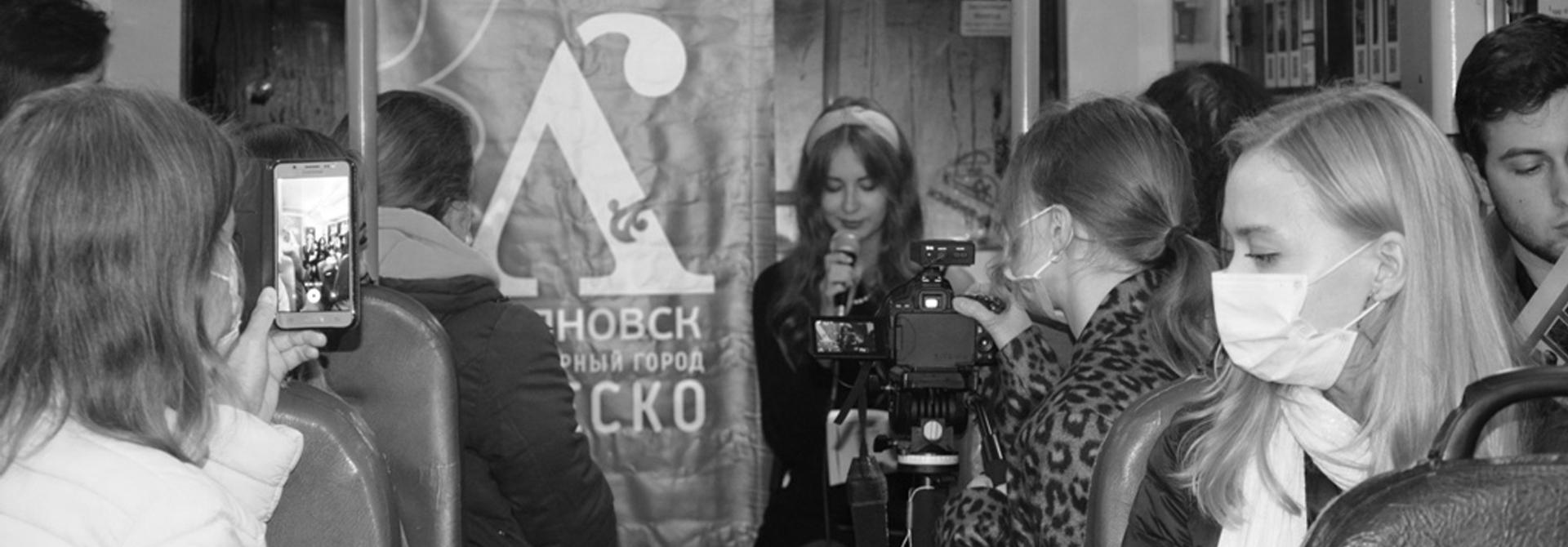
The Ulyanovsk UNESCO City of Literature Program Directorate continues publishing The Only Question - new international project - materials. 40 authors from 18 UNESCO literary cities (or related cities) participate in the project. New guests of the project are the authors from Calgary (Canada) and Mannheim (Germany) - Kelly Kaur and Claudia Schmid.
The organizers invited writers, poets, playwrights, translators from UNESCO literary cities to imagine they have the opportunity to ask just one question to an author from any other literary city. The initiative will help to introduce the authors from the literary cities to each other and establish their dialogue. The project will also let to understand what issues are of concern to authors from different countries today. Besides, it will provide an opportunity for readers to get to know new writers and poets.
Questions and answers by the authors (in Russian and English) along with a short biography of each participant and links to their publications will regularly appear on the Ulyanovsk UNESCO City of Literature Website, other literary cities' websites, and social media, etc. Writers' dialogs will also be offered for publication on the project partners' platforms (literary magazines, libraries, literary media, and mass media). As a result of the project, in summer 2022 an online anthology will be released (in Russian and English) with all the conversations.
Calgary-Mannheim - Kelly Kaur and Claudia Schmid
Claudia Schmid, Mannheim
How is this contradiction between the open, people-loving society and the still lack of dealing with indigenous people in everyday life as an artist noticeable?
Kelly Kaur, Calgary
As an artist, I am always aware of the way people around me and in society are treated. That is why being a writer, for me, is essential. My writing is my platform. It is important for me to share my stories of the invisible ones. It is necessary for me to uncover these discrepancies. It is crucial for me to highlight the injustices I see. Therefore, I write poems, stories, creative nonfiction, and novels to make the unnoticed more noticeable. I write about color, racism, immigration, and women. I also write as a woman of color and as an immigrant in Canada.
Is there a denial of how Indigenous people are treated in Canada? There are many levels and intricacies to answering this question. Yes, there have been exclusions. First, let me answer from the perspective of a writer. Things are changing very slowly, but there is some change. Today, and in our climate of being more aware, being more open, and knowing more about what goes on around us, I find that Canadians, Canadian artists, and writers are showing genuine concern about the stories, lives, and plight of the Indigenous people in Canada.
First, in Canada, there is more recognition now given to BIPOC – Black, Indigenous, and People of Color. As an artist, in the world of arts, there is a conscious effort to give due credit and attention to the silenced, unheard, and invisible, especially to the voices of the Indigenous people. There are many programs that have been created to support BIPOC, especially Indigenous, voices and presence in Canada.
There are many arts’ initiatives to give more opportunities to Indigenous artists to write their stories, create their art, share their culture and to be heard. For example, the Alberta Arts’ Foundation and the Canada Council for the Arts have many funding opportunities for First Nations, Inuit, or Metis in many aspects of their artistic pursuits. As an artist, myself, I am delighted that these Indigenous writers, artists, and cultural ambassadors will be heard more and more. About time, I say!
Second, as an educator, I find that in other arenas in Canada, there is a movement to acknowledge and recognize Indigenous rights as well. For example, I teach at Mount Royal University in Calgary, Alberta, Canada. Like most universities across Canada, Mount Royal University “commits to recognizing and valuing Indigenous ways of knowing; mentoring and supporting Indigenous students and scholars, involving Indigenous groups in educational decision-making; encouraging consciousness-raising to overcome barriers to indigeneity; promoting culturally responsive curriculum and pedagogy; and promoting partnerships with Indigenous learners, families and communities.”
Clearly, in 2021, there is a conscious effort to raise awareness about Indigenous people in Canada. As a writer and an educator, the classroom is a great starting point, isn’t it? It’s time to read more Indigenous stories, learn their past and histories, and research these issues. I know there is a long, long way to go. There are many injustices and past histories that are shameful and unacceptable. It is necessary to start somewhere, and I see there is a way forward.
As an artist, I want shout and cry at these injustices. As an educator, I want to learn more and have classrooms where we can explore and discuss these ideas and issues. I want rights to be restored. I want voices to be heard and acknowledged. I want equality. We all want that!
Therefore, the contradiction between “open, people-loving society and the still lack of dealing with indigenous people in everyday life” is something that is slowly being addressed in the field of arts, education, and other arenas in Canada. I think there is still a long way to go here in Canada, but I am glad that every small step is one in the right direction. I want more of these initiatives, and I want them to be consistent, constant, and ongoing - not just a short-term project or a temporary, fashionable measure. It must be a lifelong effort to make sure that Indigenous lives, Indigenous people and Indigenous arts and culture continue to be celebrated every single day.
That comes to the next important question you ask: “Does any of this flow into your writing?”
As a BIPOC writer, myself, I am in tune with the voice of the invisible and muted. I write about my experiences lived and focus on issues of sexism, racism, and stories of women of color and immigrants. These are my true lived experiences – genuine, raw, and authentic – a BIPOC woman.
Let each voice be authentic. Therefore, it is only right and essential that Indigenous writers and artists own their genuine, candid, sincere voices and experiences in their writing and in their art as Indigenous people. This is a time for Indigenous writers to share their stories, share their art, celebrate their culture – these are their personal, private lives and heritage. This is the time to be heard, acknowledged, and given due respect and full credibility. Only Indigenous people can write about their lived experiences, right?
The only time that Indigenous stories flow into my writing is if it based on my perspective and experience. For example, in my novel that is coming out May 2022, Letters to Singapore, the protagonist, Simran, faces racism as a foreign student in Calgary. Months later in Edmonton, Simran and her friend meet 2 Indigenous men in one of their many crazy Canadian adventures. After that intriguing event and meeting of these characters in the novel, the naïve and curious Simran offers her insights:
“On the long ride back to Calgary, I stared out the window into the darkness of the night. The words, Fuck all Indian pass-able sidewalks came back to my mind. Those were the words uttered to me by two white men outside a bar in Calgary some time ago when I went there. I agonized over those words for a long time, feeling confused by why someone would say that. Why would I or any Indian be singled out for our race or color?”
Thus, as a writer, I believe Indigenous stories must be represented by Indigenous people. We cannot appropriate others’ voices and experiences. My contribution as a woman of color and as an immigrant can come in the way my characters deal with Indigenous people in my stories.
Writers and artists have special powers of perception, description, and sensitivity that is part of our creative endeavors and journeys. Together, we can hold up our stories and art to bring attention to the complex, complicated and exquisite conditions, situations, and lives of people in our societies, our countries and in the world. Let each voice be heard!
It is fitting to end on this note as a tribute to the Indigenous people’s lives:
Treaty 7 Territory Land Acknowledgements
In the spirit of reconciliation, we acknowledge that we live, work and play on the traditional territories of the Blackfoot Confederacy (Siksika, Kainai, Piikani), the Tsuut’ina, the Îyâxe Nakoda Nations, the Métis Nation (Region 3), and all people who make their homes in the Treaty 7 region of Southern Alberta.
Kelly Kaur, Calgary
My question comes from your words: "I am particularly interested in the abysmal in the apparently oh-so-normal, what is hidden behind the smooth surface." Therefore, how do you craft your women characters in your writing? How do the women come across in your writing?
Claudia Schmid, Mannheim
The female characters in my texts are mentally strong and intelligent. They do not allow themselves to be patronized and meet men on an equal footing. Just as I would like an ideal society for myself: The focus is on the human being, regardless of their gender and appearance.I collect the ideas for my characters on the go, but I also read a lot. Before the corona pandemic, I liked to hang out in cafes and places where it is possible to watch people. I missed that very much during the pandemic, and I hope it will be possible again.
I also work as an acting patient in a university clinic. This means that the students practice with me how to communicate well with patients. I have encounters with a lot of people and receive a lot of impressions. Often there are also students from other countries who have lived in Germany for a while. It is a gorgeous enrichment for me to work with these young people, and I see opportunities in gender equality. These are all impulses that flow into my characters.
ABOUT THE AUTHORS
Claudia Schmid
Claudia Schmid, * 1960, lives in Mannheim, near Heidelberg. She writes criminal, historical and travel Books. In addition to her books, she has published 60 short stories. She works as an editor for Kriminetz.de.
https://www.claudiaschmid.de/veroeffentlichungen
https://www.claudiaschmid.de/presseberichte
Kelly Kaur
Kelly was born in Singapore and now lives in Calgary, Alberta, Canada. She teaches at Mount Royal University and at Athabasca University. Kelly is interested in exploring themes of race, color, immigration and women's issues. Kelly has been published internationally in anthologies and journals: some include Understorey, Anak Sastra, WordCity Monthly, The Social Distancing Arts Festival, Poet of the Republic, BeZine, on Blindman Session Beer Cans, in The Best Asian Stories 2020, The Best Asian Poetry 2021, and in the International Human Rights Arts Festival. Her novel, Letters to Singapore, Stonehouse Publishing, will available April 2022.
https://www.facebook.com/kelly.kaur.98/
https://www.ihraf.org/ihraf-publishes/the-precipice-of-the-periphery-kelly-kaur
https://ckua.com/listen/first-snowfall-by-kelly-kaur-a-blindman-brewing-session-story/
https://ckua.com/listen/prontha-by-kelly-kaur-a-blindman-brewing-session-story/
https://www.socialdistancingfestival.com/featured/kelly-kaur
https://thebezine.com/2021/04/07/kelly-kaur-poems/
http://anaksastra.com/uploads/3/5/2/6/35260529/anak_sastra_issue_41.pdf
https://wordcitylit.ca/2021/05/15/mother-a-story-by-kelly-kaur/
https://understoreymagazine.ca/article/a-feast-to-die-for/
https://understoreymagazine.ca/article/the-music-of-laughter/
https://greythoughts.info/blog-twc/showcase-week-of-724-3021
Previous issues




